Articles
Featured Articles
Read our latest stories on the people and scientific innovations making a difference in patients’ lives.
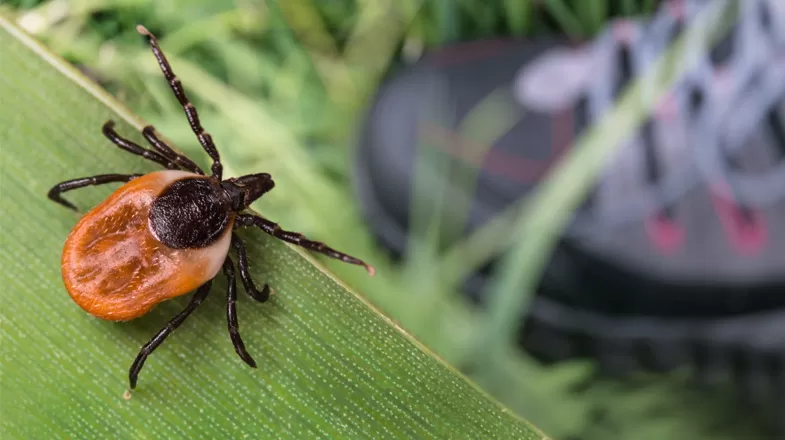
Living & Wellbeing
A Ticklist for Staying Safe While Spending Time Outdoors
Whether you like camping, taking the dog out for a walk, or simply spending time enjoying nature, it’s always good to be aware of how you and your family can help protect yourselves when you’re outside. Depending on where you live and spend your time, mosquitoes can carry diseases such as malaria, West Nile virus, Zika, and yellow fever.1,2 Also high on the watchlist are ticks, which are second only to mosquitoes for spreading disease in humans if infected with bacteria, viruses, or parasites.3...
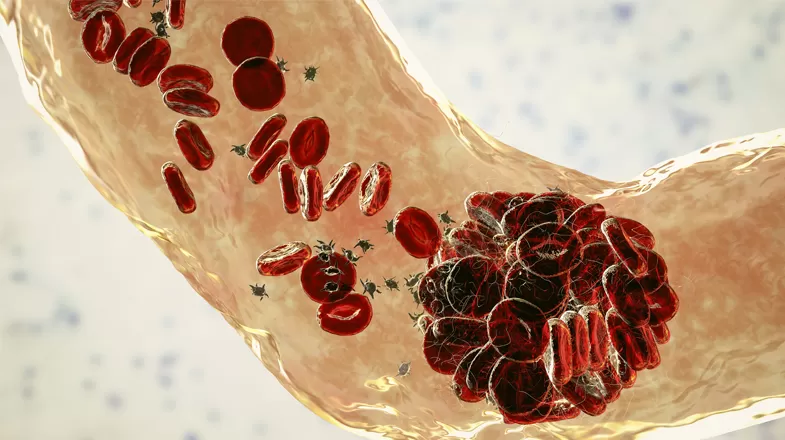
Living & Wellbeing
Are You at Risk for a Blood Clot?
NBC News war correspondent David Bloom was the image of health. In 2003, he was a 39-year-old avid tennis player. His work brought him to Iraq, where he was embedded with the 3rd Infantry Division, advancing toward Bagdad. Ultimately, it wasn’t the war, but a blood clot that killed Bloom, according to a TODAY.com account of his death.1One night, he went to sleep out under the stars on a tank fender. He called his wife, Melanie, and mentioned that he had leg cramps. The symptom appeared natural...

Living & Wellbeing
Eczema vs. Psoriasis: What’s Causing My Itchy Skin?
Getting patches of red and itchy skin that may come and go could have you wondering: Is it eczema or psoriasis, and what’s the difference? Eczema and psoriasis are two distinct skin diseases that may require different treatment plans.1Although they may be difficult to tell apart, a dermatologist (a doctor who specializes in skin conditions) can spot the differences between these two non-contagious and common skin conditions. That’s why it’s important to speak to your healthcare provider to get...
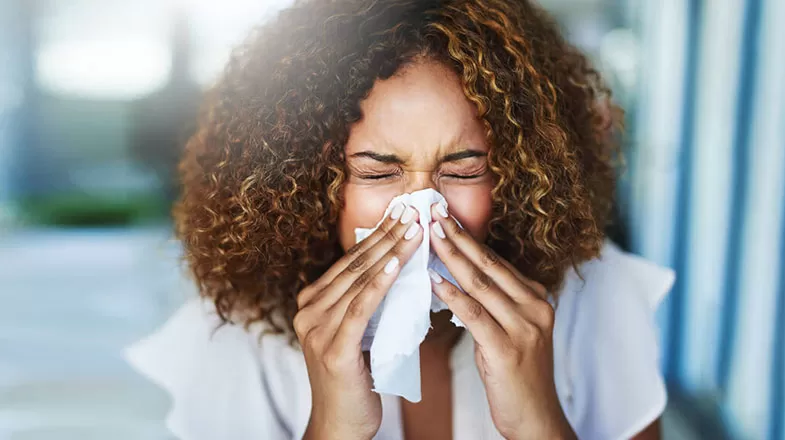
Living & Wellbeing
Feeling Sick? Use this Symptom Checker for Common Fall and Winter Illnesses
As the weather cools, viruses have a tendency to spread with more ease. That’s because people tend to spend more time indoors, where germs can circulate from one person to another through the air or close contact. This fall or winter, if you find yourself sniffling and sneezing, or experiencing an upset stomach, you could have a common virus.We’ve created a symptom checker to help you tell the difference between cold and flu symptoms, COVID-19 symptoms and norovirus symptoms. Read on to learn...

Living & Wellbeing
The Differences Between COVID-19 and the Flu
At the height of the COVID-19 pandemic, the onset of a fever, cough, sore throat, or sniffle may have led to frantic online searches for “Is this COVID-19 or the flu?”Even as the Public Health Emergency for COVID-19 has ended,1 it’s still a good idea to understand the similarities and differences between COVID-19 and influenza (the flu) and how to help protect yourself from getting sick. The information may be especially valuable because as spikes in COVID-19 cases occur, including the...

Living & Wellbeing
From Basic Health to Herd Immunity: What is the Purpose of Vaccines?
In our increasingly interconnected world, where illness can spread quickly from person to person, and even country to country, vaccines can offer protection. In fact, the World Health Organization refers to immunization as “one of modern medicine’s greatest success stories” for its ability to prevent and control infectious diseases, such as polio, influenza, and measles.1Vincenza Snow, MD, who is Pfizer’s Internal and External Policy Group Lead for Vaccines and Anti-Virals, agrees with that...
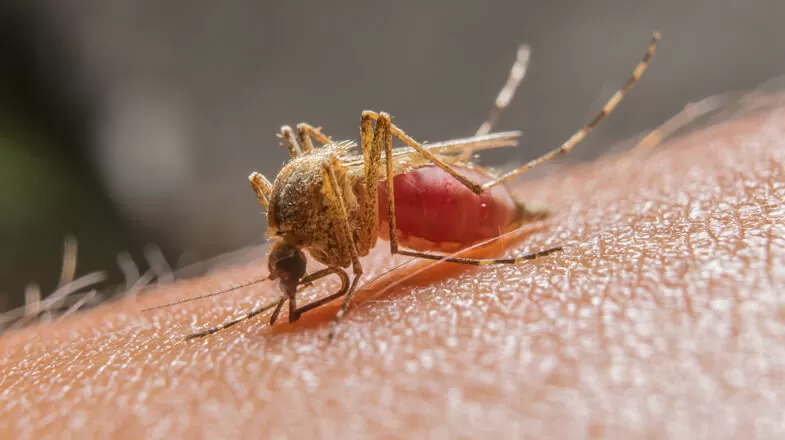
Living & Wellbeing
6 Mosquito Diseases That Can Be Deadly
Mosquitoes won’t just ruin a cookout or leave angry red welts on your skin after a blood meal; the little buzzers might also transmit serious diseases. Mosquitoes are "silent" feeders; their siphon-like mouthparts can quickly pierce human skin and feed on blood without causing any notice, says Patrick Kelly PhD, director of Global Epidemiology for Tick Borne Diseases for Pfizer. He calls it “highly efficient feeding that has been fine-tuned over millions of years.” Mosquitos have taken...

Living & Wellbeing
5 Things Worth Knowing About Biosimilars and Interchangeability
Biologic drugs have revolutionized disease management for many serious and chronic conditions including cancer, rheumatoid arthritis, Crohn’s disease, and psoriasis.1 Versions of biologic drugs, known as biosimilars, have helped improve access to these critical medicines for a wider patient population and lowered healthcare costs.2As biosimilars continue to hit the market in greater numbers, you’ll be hearing more about this class of drugs, as well as the “interchangeability” designation that...
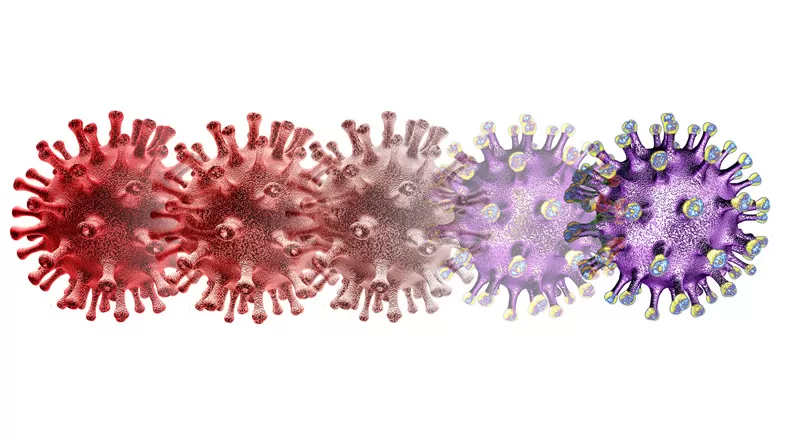
Living & Wellbeing
What is a Variant?: Understanding the Virus Game-Changer
Viruses are different from one another in many ways, including how well they spread and which parts of the body they attack. One thing most viruses have in common, though, is that they have resourceful ways to survive our efforts to kill them. As they infect and reproduce in living things, their genetic makeup changes. Some changes, or mutations, can cause a virus to be more contagious or make the host more sick. This survival mechanism helps many of these viruses with genetic variations, known...

Living & Wellbeing
Skipped Childhood Immunizations Could Lead to Resurgence of Vaccine-Preventable Diseases
Childhood vaccination rates dropped drastically during the COVID-19 pandemic, and it could potentially mean a resurgence of diseases we've long had under control. Approximately 66% of children aged 5 months in the United States were up to date for all CDC-recommended childhood vaccines in 2016-2019. By May 2020, that number declined to 49.7%. 1 A major driver of the downturn in vaccinations was canceled or skipped well-child visits. Shortly after the United States declared a national state of...

Living & Wellbeing
Addressing Disproportionate Childhood Vaccination
Vaccines for children should be available and accessible to all. And yet, despite decades of effort, significant disparities in childhood vaccination rates persist. In 2017, American Indian/Alaska Native children were 10% less likely to be fully immunized with CDC-recommended vaccines than non-Hispanic white children.1 Just 66.5% of Black children aged 19 to 35 months were fully immunized, compared to 71.5% of white children.2 Immunization rates for Asian-American, Hispanic, and non-Hispanic...

Living & Wellbeing
How Wearable Technology is Helping Scientists Better Understand Patients and Diseases
Like many people, Tim McCarthy, PhD, wears a watch that tracks his steps and monitors his activity levels. That watch also represents something else for McCarthy, who is Pfizer’s Head of Digital Medicine & Translational Imaging, which is part of Early Clinical Development in the company’s Worldwide Research, Development, and Medical Organization. For him, wearable technology could hold the power to better understand patients and diseases to improve healthcare. McCarthy acknowledges it’s still...
Media Resources & Contact Information
Anyone may view our press releases, press statements, and press kits. However, to ensure that customers, investors, and others receive the appropriate attention, Pfizer Media Contacts may only respond to calls and emails from professional journalists.
